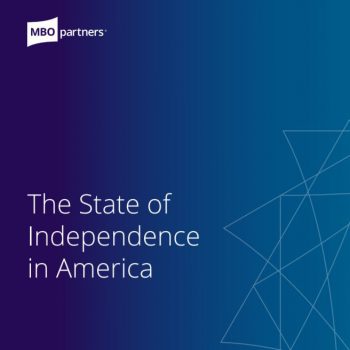
Executive Summary
Two Major Concerns
Within the body of this submission we identify, based on the feedback from the IBEC survey, the previous survey undertaken by Prof Dermot Duff, and also from our ongoing involvement in the sector and its stakeholders, two major concerns. In both of these areas Clear Rules, which are easy to understand are essential.
Firstly: The classification of the temporary engagements of professionals from both a Social Welfare and a Taxation point of view. The present lack of clarity in this area and indeed the approach in consultation documents itself is a cause of concern for many of those companies that engage professionals on a short term basis.
Secondly: The issue which was the subject of the PCSO Submission to the Department of Finance in August 2015. From an iPros perspective, this was about the current interpretation of the “Normal Place of work” and in that context the allowability of expenses for necessary travel and accommodation.
Problems Arising from these Two Major Concerns
The lack of clarity re the Social Welfare status is an impediment to taking on new projects for MNCs and Indigenous companies alike and will inevitably lead to less FDI and Job Creation.
iPros that need to undertake travel or to relocate for short term capital investment projects are increasingly reluctant to do so within Ireland and prefer to take up roles abroad, or only those close to home base.
iPros taking up roles in capital investment projects away from their home base, and who necessarily incurred travel and accommodation expenses away from home, are seeking compensation by way of higher rates.
The Higher rates being sought by iPros above are increasing the costs of capital projects in professional man hours from 17% to 22% at present to 25% to 30% of the overall capital investment cost.
Our Proposal to address these Two Areas of Concern
As set out previously we feel a common sense approach to the sector is essential, and that any major changes or alterations need to be well thought out, with the associated consequences considered, both for the economy, our economic development and a much wider view of Exchequer funding on a long term basis.
FIRSTLY: “Use of Intermediary-Type Structures and Self-Employment Arrangements”
In this submission we outline the different structures which the iPros use at present and also why these structures are required.
The important point here is that under the operation of the “Suitability Statement” (as set out in section 5 below) applied by the PCSO members currently; all their iPro clients have taken professional advice as to the most suitable structure for them and fully understand that structure.
Under this suitability process some are classified as short term iPros and hence they are taxed and pay social insurances exactly the same as any other employee i.e. Class A PRSI. This covers about 28% of all iPros.
The remaining iPros participate in structures such as Managed Companies, or Personal Service Companies (PSC) which they own exclusively and this again is to suit their particular circumstances. Paying taxes as director/employees and applying Class S social insurance.
This system used by PCSO members has worked effectively for the last number of years and our proposal focuses on rolling this out to the full iPro population.
This will ensure correct classification and it will have associated benefits for all those involved (iPros, End User, Revenue and DSP). This involves the completion of a Self-Declaration completed and signed by the iPros and counter signed by his professional adviser and submitted to Revenue.
Secondly: Travel and Subsistence Expenses incurred Wholly and Exclusively for Business Purposes by iPros.
In our proposal here we are again emphasizing and repeating our Submission to the Department of Finance in August 2015, where we set out that expenses incurred by iPros for travel and Subsistence that is incurred wholly and exclusively for business purposes should be allowed to be reimbursed tax free, as is the case for all other workers.
We draw on US and German provisions and the concept of “Home Base” for tax purposes and when absent for the home base for work purposes and expenses are incurred wholly and exclusively for work purposed these should be allowed for tax purposes. We referred to the highly developed system in the US in this regard and the similar example in Germany.
Conclusion
The PCSO proposes that by undertaking the proposal below we will address the major concerns affecting the sector at present.
1. Suitability Procedures
The “Suitability Statement” and accompanying “Self- Declaration” used by the PCSO members be rolled out to cover all iPros. This will involve the iPro and their Accountant considering their specific circumstances and submitting a Self-Declaration to the Revenue Commissioners. The Revenue Commissioners will then provide an acknowledgement of this in writing. This acknowledgement being available to attest to the status of the worker as an iPro to those who seek to engage the iPro. This simple structure will have considerable benefits for all parties as outlined in section 5 below.
2. Submission in August 2015 to Department of Finance by PCSO
The Submission to the Department of Finance in August 2015 by the PCSO is acted upon and iPros are no longer discriminated against in relation to the expenses they incur “Wholly and Exclusively” for business purposes.
3. PCSO Research in this Sector
The PCSO has access to considerable research in this sector and can engage with the Department of Finance on this Submission as required.
1.0 PCSO Mission
The PCSO has as its mission to help establish a clear, fair and practical, tax and legislative framework in Ireland to cover the Professional Contracting Sector. The Objective of the PCSO is to ensure the sector is Recognised, Nurtured and Supported to allow Professional Contractors to continue providing support to MNC and Indigenous Irish companies that make a significant contribution to the Irish economy.
1.1 PCSO Actions for the Sector
The PCSO has implemented a Code of Practice for all its members which is reviewed and certified biannually by PWC. The PCSO has created a Forum to bring all the relevant stakeholders around the table with a view to establishing best practice across the sector.
1.2 PCSO Engagement with the Revenue Commissioners
The PCSO members have been involved in servicing this sector for the last 15 years. The PCSO members have engaged with The Revenue Commissioners over the last two years and have organised that several of the stakeholders in the sector met with Revenue in order to develop the Revenue Commissioners knowledge of the operation of the sector. The purpose of this has been to provide as much information on the sector as possible, to ensure a better understanding of the sector.
The PCSO has also invited the Revenue Commissioners representative to attend each of the Forums held by the stakeholders in the sector over the last two years. Both the PCSO and the Revenue Commissioners, we understand have found this engagement very helpful.
1.3 PCSO Forum
The participants in the Forum are listed below, and mention is made (in brackets) of their specific areas of concentration.
- Enterprise Ireland (EI) (supporting Irish based Services Companies who export their services internationally. Many of these are in the Professional Services Sector)
- Industrial Development Authority (IDA) (attracting FDI into Ireland and expanding the companies already based here. The flexible workforce of professionals available in Ireland is a big factor in attracting FDI)
- IPCI (Independent Professional Contractors Ireland – national representative body for independent professional contractors in Ireland)
- ICAI (assisting with Tax policy and to support their members)
- ITI (assisting with Tax policy and to support members)
- Recruitment Agencies (Agencies that provide specialist skills required by companies Ireland, and who seek a compliant and efficient structure in which to operate)
- Revenue Commissioners (working to ensure a “Fair and Efficient” taxation system)
- Department of Jobs Innovation and Enterprise (Tax Policy to support Irish based Industry and Policy adjustments to ensure a competitive economy)
- Accounting & Taxation advisors to the Independent Professional Contracting Sector (seeking a compliant, equitable, efficient system in accounting taxation of the sector)
- IPSE (Independent Professionals and Self Employed) UK organisation assisting with Research and advice.
- FCSA (Freelancer Contractor Services Association) from the UK (assisted with code of Practice and with approach to setting up)
1.4 PCSO Special Report and Understanding the Sector
The Special Report on the sector was prepared by the PCSO in May 2015 and is reproduced in full in the appendices. Much of this proposal is included in Section 5 of this Submission. Some of the key findings highlight exactly who iPros are:
1.5 Sole Trader Status / Ltd Company
Some of the important points to remember are that iPros are Professional individuals that chose to provide their services as independent professionals. Given the significant risks associated with engaging sole traders to undertake professional services, most end clients will insist that independent professionals must provide their services via a limited company as a measure of selfprotection. Had they not have operated through limited companies but as sole traders they would be taxed as Schedule D case II (professional occupations)rather than schedule D case I (trades)
PCSO iPros Review from our Databases of the last three years, to help distinguish the different groupings


